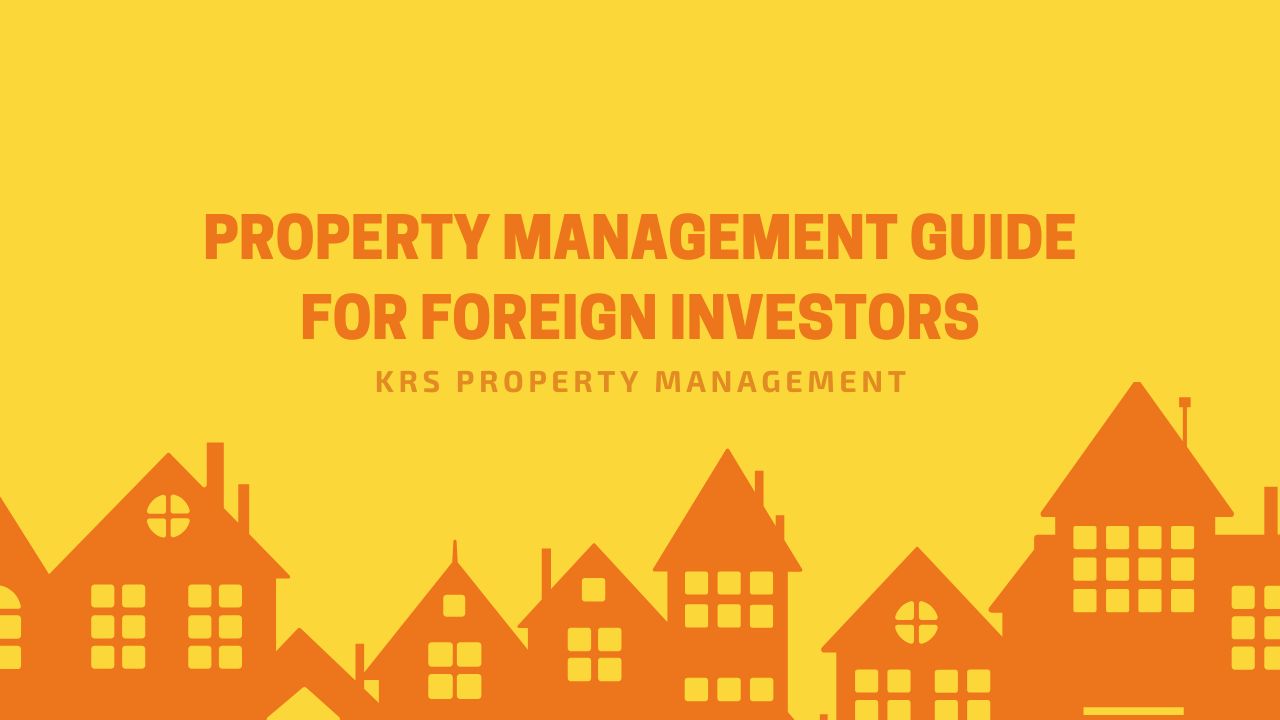Key Takeaways
Know Local Laws: Foreign investors must understand U.S. rental laws, taxes, and tenant rights to stay compliant.
Pick the Right Property: Location and property type significantly impact rental income and vacancy rates.
Plan for Currency & Taxes: Be mindful of exchange rates and international tax obligations—consult a tax expert.
While international real estate can be a smart investment, managing property from abroad involves complex challenges that many landlords underestimate. Legal requirements, communication barriers, and logistical issues can make foreign property management difficult without the right systems in place.
To help you navigate this process successfully, KRS Property Management has put together this practical guide for foreign investors.
Whether you already own overseas property or are planning to invest, this article will walk you through the key steps and considerations to manage your rental effectively and legally.
Key Considerations for Foreign Property Investors
Here are the key factors for foreign investors to consider:
Local Laws and Regulations
One of the most important steps for foreign landlords is learning the local property laws and regulations. Each country, and sometimes each city, may have different rules related to rent control, lease and rental agreements, tenant rights, eviction processes, taxes, and maintenance responsibilities.
Before buying or managing a property, make sure you understand your legal obligations. Failing to comply with local laws can result in fines, legal disputes, or even the loss of your investment.
You may need to register with certain government agencies, apply for licenses, or appoint a local agent to act on your behalf.
Choosing the Right Property
The success of your rental property depends largely on the type of property and its location.

As a foreign investor, it's critical to do market research or consult local experts before buying. Consider factors like rental demand, neighborhood safety, proximity to schools and public transport, and long-term growth potential.
Investing in the wrong location can make it hard to find tenants, may result in high vacancy rates, and could impact your return on investment. A well-located, well-maintained property is more likely to attract reliable tenants and generate steady income.
Currency Exchange and Taxation
Managing a property from abroad involves dealing with different currencies and tax systems. Exchange rate fluctuations can affect your rental income and expenses.
You may also be subject to taxation both in your home country and in the country where the property is located.Consult with an accountant who understands international property taxation.
You may be required to file taxes locally, report income in your home country, and potentially pay capital gains tax if you sell the property. Understanding these obligations early can help you avoid surprises and protect your investment.
Handling Tenants from Abroad
Being an overseas landlord means you won’t be available for day-to-day issues that may arise. You must have a plan for how to screen tenants, handle lease signings, collect rent, respond to maintenance requests, and manage disputes.

A clear lease agreement is essential. Make sure it outlines tenant responsibilities, payment terms, and procedures for repairs and emergencies.
Also, ensure your tenants have a way to contact someone locally if they have urgent issues. Reliable communication between you, your tenants, and your representatives is key.
Hiring a Local Property Manager
For most foreign landlords, hiring a professional property management company is the best way to maintain control over their investment.
A property manager can act as your local representative, handle all tenant communications, and make sure your property is maintained and compliant with local laws.
Property managers can also help market your property, screen potential tenants, conduct inspections, and manage repairs. They have local experience and understand the market. Hiring the right manager can save you time, reduce stress, and improve your property's performance.
Maintenance and Emergencies
No matter how new or well-maintained a property is, repairs and emergencies will happen. You must have a realistic budget for ongoing maintenance, unexpected repairs, and any property upgrades.
Ongoing maintenance is essential for protecting your investment and ensuring tenants remain comfortable and willing to stay long term.
Because you are managing the property remotely, it is important to have a trusted local contact or manager who can handle emergencies quickly. Delayed responses to maintenance issues can lead to more costly repairs or unhappy tenants.
.jpg)
A property manager can help develop a preventive maintenance schedule to reduce the likelihood of emergencies. This may involve seasonal servicing of HVAC systems, checking plumbing, roof, walk-through inspections, and routine pest control.
Establishing a reserve fund for repairs is also important. Without one, landlords may face financial strain when unexpected expenses arise. In addition, keeping detailed maintenance records helps track recurring issues and supports warranty or insurance claims if needed.
Monitoring Performance Remotely
Technology has made it easier for foreign landlords to track the performance of their properties. With the support of a property manager, you can use cloud-based tools, accounting software, and video calls to stay informed and involved from anywhere in the world.
Your property manager plays a key role in providing regular updates, sharing financial reports, and offering insights on local market conditions.
They can help interpret data, flag issues early, and suggest improvements. Even with remote access to information, consistent communication with your property manager is essential to ensure your property remains well-maintained and profitable.
Bottom Line
Managing rental property from another country comes with legal, financial, and logistical challenges. Foreign landlords must understand local laws, select the right property, plan for taxes and currency changes, handle tenant needs, and keep up with maintenance.
Hiring a local property manager is often the smartest choice to ensure your investment is protected and profitable.
KRS Property Management is experienced in working with international landlords and understands the unique needs of managing property from abroad. Our team can handle everything from tenant selection and legal compliance to maintenance and rent collection.
We offer transparent reporting and dependable communication so you can manage your investment with confidence. Contact us today to learn how we can help you manage your property remotely with less hassle and better results.







